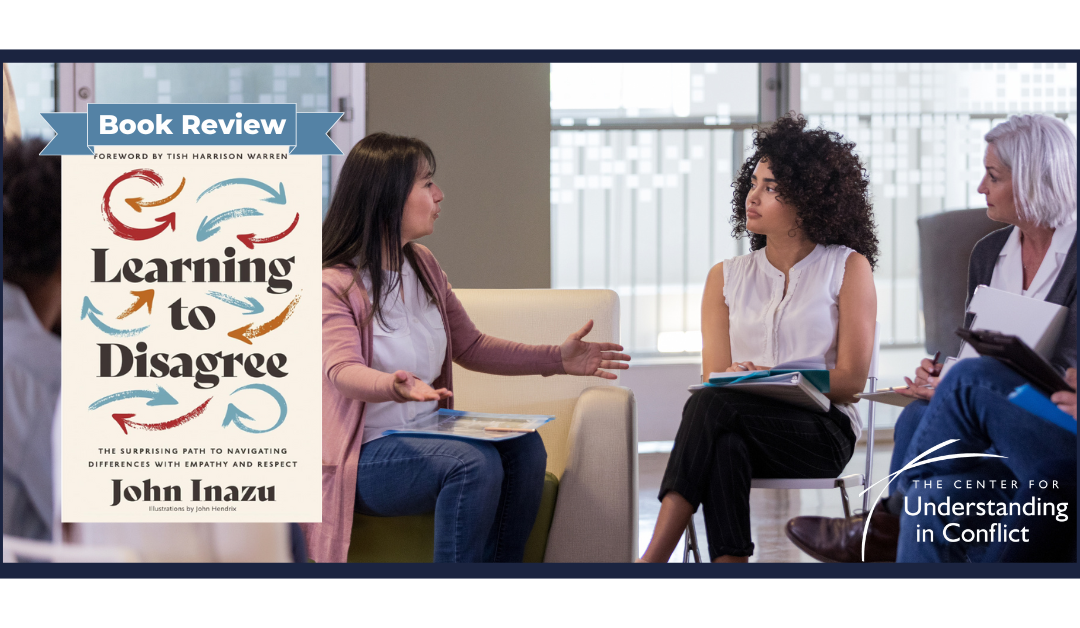Inazu’s book is particularly relevant for conflict resolution professionals who constantly navigate complex interpersonal dynamics and mediate disputes. His approach emphasizes the foundational principles of empathy, respect, and understanding, which are essential tools for anyone involved in conflict resolution. The book challenges readers to reconsider how they perceive disagreement, encouraging a shift from adversarial interactions to constructive dialogue.
One of the book’s core arguments is that disagreement is inevitable and beneficial. Inazu shares how engaging with diverse perspectives can lead to personal growth and a deeper understanding of the world. For mediators, this perspective is crucial. It underscores the importance of viewing conflict as an opportunity for learning and transformation rather than merely a problem to be solved. Mediators can help parties find common ground and develop more sustainable solutions by fostering an environment where differing viewpoints are respected and explored.
Inazu’s emphasis on empathy is particularly resonant. He argues that genuinely understanding another person’s perspective requires more than just listening to their words; it involves a genuine effort to see the world through their eyes. This concept is especially pertinent for conflict resolution professionals, whose success often hinges on their ability to empathize with all parties involved. The author provides practical advice on cultivating empathy, suggesting that it begins with acknowledging our biases and limitations. This self-awareness allows us to approach others with humility and openness, creating a space where meaningful dialogue can occur.
Respect is another pillar of Inazu’s framework for navigating disagreements. He stresses that respect does not mean agreement or endorsement of another person’s views. Instead, it is about recognizing their inherent dignity and worth as individuals. For mediators, maintaining respect for all parties is fundamental. It helps build trust and rapport, which are critical for effective mediation. His insights into demonstrating respect through language, behavior, and attitude are invaluable for anyone looking to improve their conflict resolution skills.
In addition to empathy and respect, Learning to Disagree highlights the importance of patience and perseverance in navigating disagreements. He acknowledges that changing minds and hearts is a slow process that requires ongoing effort and commitment. This perspective is particularly relevant for conflict resolution professionals, who often work with individuals and groups entrenched in long-standing disputes. Inazu’s reminder that progress is incremental and that setbacks are a natural part of the process is realistic and encouraging.
The book is a treasure trove of real-world examples and case studies that vividly demonstrate Inazu’s principles in action. These narratives breathe life into the theoretical concepts, showing how empathy, respect, and patience can metamorphose contentious interactions into constructive conversations. The book doesn’t just stop at individual conflict resolution; it also addresses the broader societal implications of learning to disagree with empathy and respect.
For conflict resolution professionals, Inazu’s vision of a society where differences are navigated with empathy and respect aligns with their mission to promote peace and understanding, instilling a sense of purpose and significance in their work. His call to action—to engage with others in a spirit of curiosity and compassion—offers a hopeful and constructive path forward, reinforcing the importance of their role in society.
This book offers a powerful and practical framework for engaging with differences in a way that fosters understanding and respect. By challenging readers to view disagreement as an opportunity for growth and connection, Inazu offers a hopeful vision for a more empathetic and respectful world.
